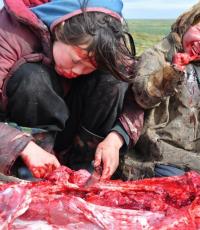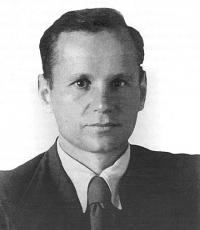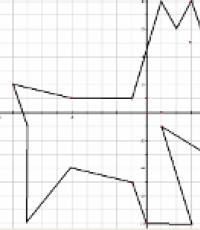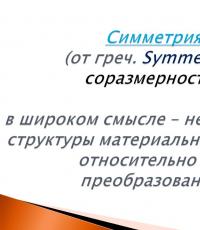Peter I the Great. Устная тема по английскому языку с переводом
21 Пётр Финикийский
Christianity: Peter of Phoenecia (христианский святой)
22 Пётр Хрисолог
Christianity: Peter Chrysologus (христианский святой и богослов)
23 Пётр патрикий, Константинопольский
Christianity: Peter the Patrician of Constantinople (христианский святой)
24 Пётр, архиепископ Александрийский
Christianity: Peter, archbishop of Alexandria (раннехристианский святой)
25 Пётр, архиепископ Воронежский
Christianity: Peter, archbishop of Voronezh (православный святой)
26 Пётр, митрополит Крутицкий
Christianity: Peter, metropolitan of Krutitsy (православный святой)
27 апостол Пётр
Christianity: Peter the Apostle
28 Пётр
Petr рус. , Piotr бел. , Peter англ. , Pete англ., уменьш.
29 Пётр
Pyotr, Peter
30 Пётр Великий
31 без ножа резать
(кого )
прост.
put smb. in a desperate situation; cut smb. to the quick; be quietly cutting smb."s throat; be death to smb.; be the ruin of smb.
Готова невеста? Девки-плясицы где? Ой, мало... Ой, милые, бесценные, что же вы сделали, без ножа зарезали. (А. Толстой, Пётр Первый) - "Is the bride ready? Where are the girl dancers? Oh dear, there aren"t enough of them... Oh, my dears, my precious ones, what have you done, you"ll nearly ruined the whole thing..."
Вы же нас без ножа зарезали! Вы поймите, что вы делаете! Без совета с нами вы фактически разоряете то, что с таким трудом создавалось! (Г. Марков, Грядущему веку) - "You have cut us to the quick. Do you understand what you are doing? Without consulting us you have, in fact, destroyed what was created with such difficulty."
Сейчас опять начнут говорить об институте-заводе, перебоях в материально-техническом снабжении. "Поставщики режут без ножа!" (В. Ерёменко, Слепой дождь) - Now they would again start talking about their institute-plant and hold-ups in supplies of materials and equipment. "The suppliers are quietly cutting our throats!"
32 брать волю
уст. , неодобр.
be self-willed (wilful); make bold (free) to do smth.; take the liberty (liberties) of doing (to do) smth.
Волю взял со мной говорить!... Осмелел? (А. Толстой, Пётр Первый) - "You made free to speak to me like that? Growing bold, eh?"
33 в бегах
1) уст. (в самовольной отлучке (быть, числиться и т. п.) ) be on the run; be a fugitive, be outlawed and in hiding; be in flight from smb., smth.
Лет пятнадцать он был в бегах, шатался меж двор. Но вышел указ: вернуть помещикам всех беглых без срока давности. (А. Толстой, Пётр Первый) - He had been a fugitive for fifteen years, wandering from place to place. But then an order was issued that all runaways were to be returned to their masters, however long they had been free.
Откуда она, рука-то, возьмётся? Кто мог бы, давно в ссылке или в бегах, как вы, иные - на фронте, а многих уже и нету. (Г. Марков, Сибирь) - "And where"ll you find that hand? Who can do it - with folks long in exile or on the run, like you, and some at the front, and a lot gone."
2) (в хлопотах, беготне по каким-либо делам ) having a lot of running to do; on the run; bustling about
Работа суетная - весь день в бегах. (С. Крутилин, Липяги) - That"s a troublesome business. You"re bustling about all day long.
34 в милости
(у кого ) (быть )
enjoy smb."s favour; be in (fall into, get into, keep in) smb."s good graces (books); gain (get) smb."s good graces; stand in smb."s good graces
Видишь ты, - мажордом о ней докладывает. В золочёной карете приехала! Муж у царя в милости... (А. Толстой, Пётр Первый) - "And now her arrival was announced by the major-domo! She had come in a gilt carriage! Her husband enjoyed the Tsar"s favour..."
35 в рукав
в рукав (в рукавицу) (смеяться над кем-либо, хихикать, злословить и т. п. )
уст.
laugh up one"s sleeve; snigger into one"s sleeve
На него и оставили Москву. А чтоб над ним не хихикали в рукав за прежнее, - велено было без шуток именовать его князь-кесарем и величеством. (А. Толстой, Пётр Первый) - It was he who was left to govern Moscow. And in order that people should not snigger into their sleeves because of his past, it was ordained that he should be addressed as Prince-Emperor and His Majesty in real earnest.
36 вить верёвки
(из кого )
make smb. eat out of one"s hands; twist smb. round one"s little finger; be able to get anything out of smb.
Оба ещё несмышлёные мальчишки, за обоими сила - в родне. Пётр - горяч умом, крепок телесно, Иван - слабоумный, больной, вей из него верёвки... Что предпочесть? Кого? (А. Толстой, Пётр Первый) - Both were mere boys: both had powerful relatives. Peter was hot-headed and physically strong. Ivan was a feeble-minded weakling: you could get anything out of him. Which was preferable? Which should be chosen?
Слышала, Тоська из тебя верёвки вьёт? - Илья смутился, вяло запротестовал: - Так уж и верёвки? - Даже канаты! Со стороны, Ильюша, виднее... (Б. Бедный, Девчата) - "I hear you"re eating out of Tosya"s hands?" Ilya put up a mild protest. "Not really..." "Not just eating, lapping it up! It"s there for all to see, Ilya darling..."
37 во весь рот
прост.
1) (очень громко (кричать, орать и т. п.) ) shout (yell, etc.) at the top of one"s voice; yell oneself hoarse
Меньшиков бежал через плавучий мост среди низкорослых стрелков - ингерманландцев, потрясая шпагой - кричал во весь рот. Все солдаты кричали во весь рот. (А. Толстой, Пётр Первый) - Brandishing his sword and shouting at the top of his voice, Menshikov ran across the floating bridge in the midst of the little marksmen, who belonged to the Ingermanland Regiment. All the men were yelling themselves hoarse.
2) (широко, приветливо (улыбаться, ухмыляться и т. п.) ) smile all over one"s face; smile (grin) from ear to ear
Каждый входящий здоровался с Ключарёвым степенно, за руку, и улыбался во весь рот: его уже давно не видели! (Л. Обухова, Глубынь-Городок) - Every new arrival greeted Klyucharev formally, shaking his hand and smiling all over his face. It was a long time since they had seen him last.
3) (широко, протяжно (зевать) ) yawn one"s head off; be yawning fit to dislocate one"s jaws
Сколько, поди, денег потратил на эту чепуху, а для чего, спрашивается? - замечает один марсовой, лёжа на кровати и зевая во весь рот. (А. Новиков-Прибой, Одобренная крамола) - "The money you must have thrown away on all that junk! A fat lot of good it does you," a topman said, yawning fit to dislocate his jaws.
38 далеко не уйдёшь
(без кого, без чего, с кем, с чем ) , тж. далеко не уедешь (на чём, без кого, без чего, с кем, с чем )
разг.
you won"t go very far without (or with) smb., smth.; that won"t (will never) get you far; that will not avail you much
Как учили отцы, деды, - будь смирен, богобоязнен, чти старших, - нынче с этим далеко не уйдёшь. Вверх лезут - у кого когти и зубы. (А. Толстой, Пётр Первый) - He had followed the teachings of his father and grandfather; he was humble, God-fearing and respectful to his elders. But nowadays that did not avail you much. Those who had claws and teeth were the ones who succeeded.
Здесь вы можете найти биографию Петра I на английском языке. Пётр I краткая биография
Peter I (30.05.1672 - 08.02.1725) - Russian Tsar.
Peter I was born on 30 May 1672. When Peter was a child several teachers were delegated to teach him. Among Peter’s tutors were Patrick Gordon, Nikita Zotov and Paul Menesius. This process was commissioned by Tsar Alexis I.
In 1676 Tsar Alexis I died. As a result the power was left to Feodor III who was Peter’s elder half-brother. He died in 1682 and there were not his descendants. Consequently there was a conflict for power between the Miloslavsky and Naryshkin families. Other half-brother of Peter, Ivan V, was heir to the throne but his health declined. As a result at the age of ten Peter became Tsar chosen by the Boyar Duma.
Peter was interested in shipping and shipbuilding. He was a tall man and his height was about 200 cm. He did not have square shoulders and his feet and hands were small. Moreover Peter’s head was small for his figure. In accordance with his mother’s desire Peter married. The marriage was in 1689 and Eudoxia Lopukhina became his wife. 10 years later the marriage broke down and Peter’s wife became a nun.
In 1689 the power was in the hands of Peter’s half-sister Sophia. Because of two ineffective Crimean campaigns her authority was undermined and Peter planned to take power. Peter could become an independent ruler only in 1694 when his mother died. Officially there were two rulers: Peter and Ivan V. In 1696 Peter became the absolute ruler when Ivan V died.
On 19 August 1700 Peter declared war on Sweden. The main aim of the war was to acquire control of the Baltic Sea. At that time it was under Swedish Empire control. Denmark-Norway, Saxony and the Polish-Lithuanian Commonwealth supported Peter. In 1721 the Treaty of Nystad ended and the Russian Empire acquired control of the Baltic Sea. This war went down in history as Great Northern War.
In October 1721 Peter was proclaimed Emperor of All Russia. Augustus II of Poland, Frederick William I of Prussia, and Frederick I of Sweden recognized this title. Other monarchs did not agree with it. Some rulers were afraid that Peter would claim authority over them.
Peter imposed new taxes in the Russian Empire. The household tax and the land tax were abrogated. These two taxes were superseded with a poll tax. He also reformed the Russian Orthodox Church.
In 1724 Peter married for a second time to Catherine who was crowned as Empress. However he remained actual ruler of Russia. Peter had 2 wives and 14 children by them. Only 3 of his children survived to adulthood.
In 1723 Peter’s health declined. He had problems with bladder and urinary tract but he was cured. As legend has it in November 1724 while at Lakhta Peter was forced to rescue the soldiers drowning not far from shore.
Consequently his health became worse and these problems caused his death. Peter died on 8 February 1725.
Peter I, or Peter the Great (1672-1725), was one of the most outstanding rulers and reformers in Russian history. He was at first a joint ruler with his weak and sickly half-brother, Ivan V, and his sister, Sophia. In 1696 he became a sole ruler. Peter I was Tsar of Russia and became Emperor in 1721. As a child, he loved military games and enjoyed carpentry, blacksmithing and printing. He was first married at the age of 17.
Peter I is famous for carrying out a policy of "westernization" and drawing Russia further to the East that transformed Russia into a major European power. Having travelled much in Western Europe, Peter tried to carry western customs and habits to Russia. He introduced western technology and completely changed the Russian government, increasing the power of the monarch and reducing the power of the boyars and the church. He reorganized Russian army along Western lines.
He also transferred the capital to St. Petersburg, building the new capital to the pattern o/European cities.
In foreign policy, Peter dreamt of making Russia a maritime power. To get access to the Black Sea, the Caspian Sea, the Azov Sea and the Baltic, he waged wars with the Ottoman Empire (1695—1696), the Great Northern War with Sweden (1700-1721), and a war with Persia (1722-1723). He managed to get the shores of the Baltic and the Caspian Sea.
In his day, Peter I was regarded as a strong and brutal ruler. He faced much opposition to his reforms, but suppressed any and all rebellion against his power. The rebellion of streltsy, the old Russian army, took place in 1698 and was headed by his half-sister Sophia. The greatest civilian uprising of Peter"s reign, the Bulavin Rebellion (1707—1709) started as a Cossack war. Both rebellions aimed at overthrowing Peter and were followed by repressions.
Peter I played a great part in Russian history. After his death, Russia was much more secure and progressive than it had been before his reign.





